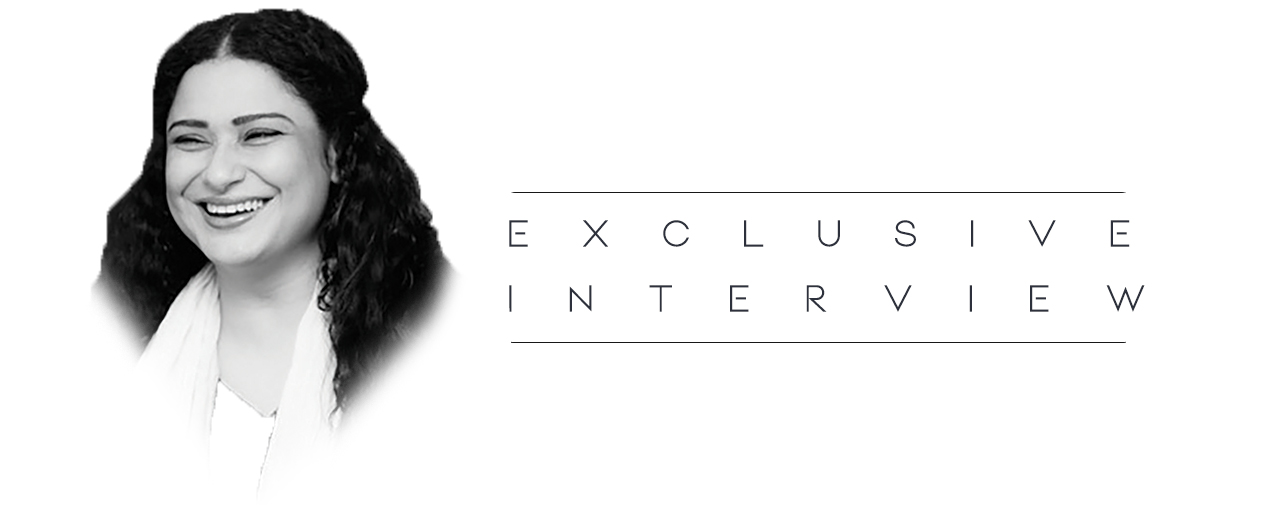Sania Saeed does not need any introduction to narrate what her accolades have been. She is one of the most talented actors on TV and theatre. Her work has consistently stood out for perfection. Her meticulous delivery of dialogues and her involvement in the character is a testimony to her deep commitment to this profession.
She talks to Fashion Collection about her debut roles, about future of theatre in Pakistan and about her existing projects.


Fashion Collection: What are you currently involved in?
Sania Saeed: Nimra Bucha and I are doing a theatre play called Mushk. We will be performing in Islamabad and Karachi in October and November so rehearsals are in the process right now. On TV, there is one serial being aired on Express. It is about a woman who rises against all odds. She is naïve and honest and doesn’t know it. She doesn’t know when to stop giving. She is giving and giving and giving and that is the conflict in this play.
Fashion Collection: How has theatre evolved in Pakistan and where does it stand today?
Sania Saeed: At partition, there were a lot of people who were already doing work there. Gradually it fizzled out because state did not support people here. A lot of theatre was happening in Lahore, being a major cultural hub. Karachi had a completely different flavor of theatre. It was more colonial. Parsi was the most popular form of theatre as far as I know. Then of course Urdu theatre was great. But as things became severe and glum, theatre went out of the window. There were a lot of financial constraints and the community shrunk. The communities that were more culturally active left. People became less and less social because of the security concerns. With martial law being imposed, all performing arts expressions were curtailed and that became one of the biggest reasons why theatre didn’t work here. With the advent of electronic media, it became convenient as you didn’t have to go out of your house to watch dramas. So that resulted in somewhat constraints movements outside homes.
Fashion Collection: Why has comedy-theater survived?
Sania Saeed: Since it does not put you in any kind of pain, it doesn’t make you think. It makes you feel powerful when they see people working really hard to entertain them. A lot of the jokes are at the cost of other people that also instill a feeling of improvement like if I cannot dominate anybody at least I get that sense. People really think that’s funny. But that’s sad, it not a healthy thing.
Fashion Collection: What was your debut work?
Sania Saeed: It was a screenplay for Rahat Kazmi back in 1988. Fehmida Nasreen is a very talented person. We went to shoot that in her studio and there I met Sahira Kazmi who was already a friend of my father, so she was doing a serial and she offered me a role in that. While I was doing that Ms. Ismail saw me, in PTV and she said Marina is not here, so I want you to do her character for a children’s play that was being televised. So I did that too.
Fashion Collection: Tell us something about Tareekiyon Key Saye?
Sania Saeed: Tareekiyon Key Sayee is a play that we did on working children from our theatre group called Katha. We were five friends who formed this organization and this was a workshop that we did for working children with another organization that works for child labour. We developed this play with working children and they performed really well. It was the first time they acted on stage so for us it was an important learning experience. Later we did several projects pertaining to child labour issues. We did Koochi Ki Chirya for blind and deaf children.
Fashion Collection: What about the Dastak and Katha?
Sania Saeed: Dastak was a theatre group that my father formed along with some other people and it was basically to become a voice against any kind of oppression and dictatorship. Katha was a theatre group that was formed in 1992 and it fizzled out because the people that formed were from different professions, all volunteers. They thought it was a good medium through which they can say whatever is aggravating them, they can voice their concerns. They were mostly doctors and university professors and there were even people from trade unions and workers from factories. So after some time it became very difficult to sustain that theatre group as it was based only on volunteers. When Katha started doing theater, it was more on social issues and less political in nature, so we were doing plays on child labour, blind children, environment, human rights, aggression and violence in school children. We dramatized a lot of plays from different countries, adapted some of them and translated some of them.


Fashion Collection: In your opinion, what is your best work so far?
Sania Saeed: I always see my work and think this could be done better. But in different times you think that certain things are the best.
Fashion Collection: What has been your most challenging work so far?
Sania Saeed: Most challenging work is every time you work with a community who are not actors. It is very challenging because they come with a lot of baggage and you have to start from the scratch.
Fashion Collection: If you were to choose between theatre, TV or film, what would you do?
Sania Saeed: I will not choose, I never had to. To be completely honest, depends in what condition I am in. If I am completely broke, I will do television and if I have little money in my bank I would do theater.
Fashion Collection: What do you feel about the quality of Pakistani films? What are the shortcomings that you can identify?
Sania Saeed: It is struggling. Film in Pakistan has always been “sotaila bacha”. Making a film takes a lot of practice, watching and enjoying a film takes a lot of practice as well. But there is a good thing that we are making all sorts of films now. We have films like Punjab Nahi Jaoun Gi and then films like Namaloom Afraad, all these films have been released in the same time period and yet are really different. The biggest asset is our actors. And if you notice cinematography has broken all barriers. I think the most challenging aspect of our films is the script and I think nobody so far, except Nabeel, has been able to draft that right. So I think Namaloom Afrad has the smartest script in Pakistan truly.
Fashion Collection: What have you learnt about yourself since you became a celebrity?
Sania Saeed: Not to take myself so seriously and keep a very good head on your shoulders.
Fashion Collection: What has been your biggest success in life so far?
Sania Saeed: My friends I would say. It is one thing that I achieved in my life so far and I earned them.
Fashion Collection: Describe yourself in three words?
Sania Saeed: That is very difficult. I have no idea. I am lazy, that I know.
Fashion Collection: What would be your dream project?
Sania Saeed: I think I’ve done pretty much everything, except for a musical which I wanted to do but now I know I can’t, because of my knee injury. But I think I did some of the initial music theaters, when the classical theater went out, I guess it was in 1989.
Fashion Collection: How would you define your current organization Olomopolo?
Sania Saeed: Olomopolo is a junction where we would like people to come and freely express themselves. We have cultural events every weekend and theater plays regularly. There are people coming to jam here and to read their poetry. We have people doing stand-up comedy; all types of people are contacting us on their own. There are people coming to discuss their books. For now we have four people, myself, Kanwal, Irum and Vicky. And we all do separate jobs. I act, Kanwal is a director on TV and Irum does her own work. And after that we all come and do our work that we love. This is about creating a platform.


